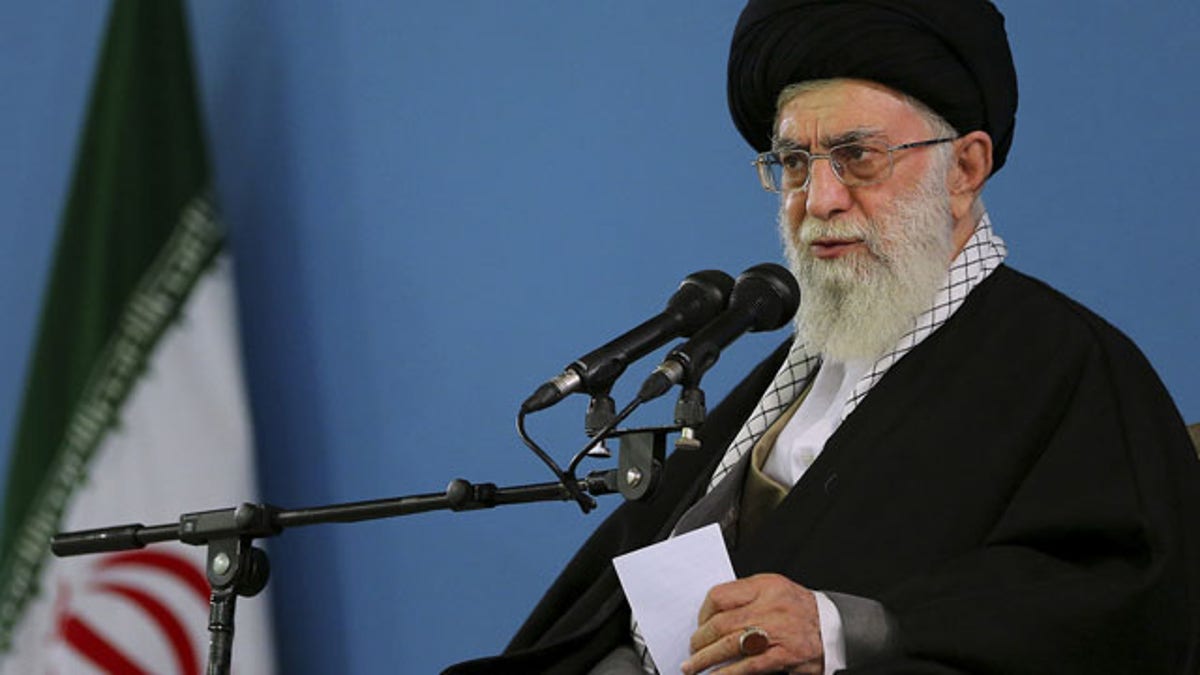
Feb. 8, 2015: In this photo released by an official website of the office of the Iranian Supreme Leader, Iranian Supreme Leader Ayatollah Ali Khamenei delivers speech during a meeting with air force commanders and officers in Tehran. (AP Photo/Office of the Iranian Supreme Leader)
TEHRAN, Iran – Iran's supreme leader has criticized the film "American Sniper," saying the movie about a U.S. soldier fighting in Iraq encourages violence against Muslims, a state-run newspaper reported Tuesday.
The comments by Ayatollah Ali Khamenei, published in the daily IRAN Farsi newspaper, come amid renewed criticism of the West by the leader as his country negotiates with world powers over its contested nuclear program.
The newspaper quoted Khamenei as saying he hadn't watched the film directed by Clint Eastwood and starring Bradley Cooper, but had heard about its plot from others. The film focuses on the life of U.S. Navy SEAL marksman Chris Kyle, who with 160 confirmed kills is considered the most lethal sniper in American military history.
"The movie `Sniper' that is made by Hollywood encourages a Christian or non-Muslim youngster to harass and offend the Muslims as far as they could," the newspaper quoted Khamenei as saying.
Khamenei also reportedly discussed neo-Nazis attacking Muslims in Germany, saying Muslims have no safety in the West.
"You are seeing what sort of propaganda there are against Muslims in Europe and the U.S.," he reportedly said.
The newspaper said Khamenei made the comments while meeting representatives of Iranian religious minorities in the country's parliament three weeks ago. The newspaper did not explain why it was publishing the comments now.
"American Sniper" has been a sensation at the box office, earning more than $300 million in North America since its release in December.
Hollywood's movies are popular in Iran and Iranian state television channels occasionally broadcast them. However, "American Sniper" has not been released in Iran, where Khamenei has final say in all state matters.
The U.S. and Iran have viewed each other with mutual suspicion since the country's 1979 Islamic Revolution overthrew the American-back shah and the ensuing hostage crisis at the U.S. Embassy in Tehran. Iranian-backed militiamen and soldiers are battling the Islamic State group now in Iraq, but the country has not joined a U.S.-led coalition targeting the extremists in airstrikes.
